Remember This? #11 Classroom Posters
If you do, leave a comment!
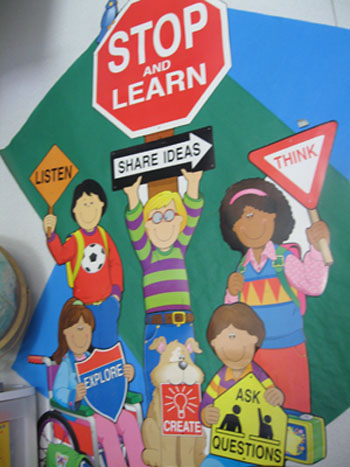
If you do, leave a comment!

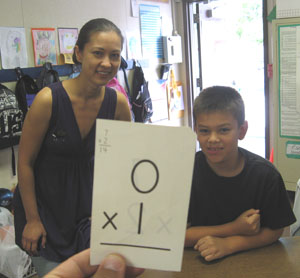 If I had to name one classroom activity that used to make my adrenaline levels skyrocket, it would be Around the World.
If I had to name one classroom activity that used to make my adrenaline levels skyrocket, it would be Around the World.
Here’s how it works. One student begins the game by standing next to the desk of a classmate who will be the first challenger. The two competitors face the teacher, who has a stack of flash cards with simple math equations on them. The teacher quickly pulls out a card and holds it up in front of the competing pair. The student who does the mental math and shouts out the correct answer first moves to the next desk, taking on a new challenger. The objective is to travel “around the world,” beating every classmate with quick-draw math skillz.
challenger. The two competitors face the teacher, who has a stack of flash cards with simple math equations on them. The teacher quickly pulls out a card and holds it up in front of the competing pair. The student who does the mental math and shouts out the correct answer first moves to the next desk, taking on a new challenger. The objective is to travel “around the world,” beating every classmate with quick-draw math skillz.
I’m not gonna lie — back in my day, I was kind of a big deal at this game, drawing grumbles from the other kids when it was their turn to challenge me. I don’t think I exactly looked forward to competing, since the threat of losing in front of everyone made me anxious. I remember my heart racing with each new round, feeling pressure to perform and relief when the game finally ended.
September 25, 2008 Childhood, Educational Philosophy & Practice, Elementary School, Reschooling Tools 3 Read more >
If you do, leave a comment!
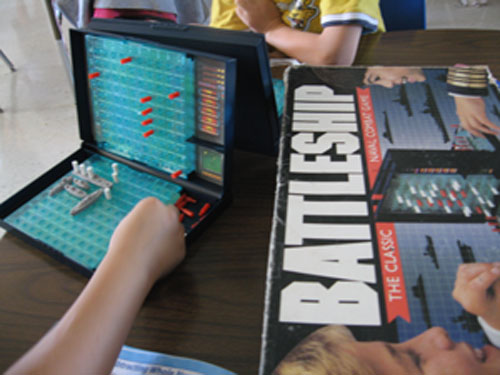
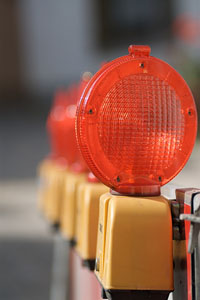 I’ve been drafting an official project proposal for Reschool Yourself bit by bit for months now, and intensively for the last week. As hard as I’ve worked, I’ve been unable to craft my countless notes into a cohesive, inspiring proposal. The very reason it’s taken me so long to craft a full project proposal is evidence for why I’m reschooling myself in the first place.
I’ve been drafting an official project proposal for Reschool Yourself bit by bit for months now, and intensively for the last week. As hard as I’ve worked, I’ve been unable to craft my countless notes into a cohesive, inspiring proposal. The very reason it’s taken me so long to craft a full project proposal is evidence for why I’m reschooling myself in the first place.
I have invested hours and hours detailing measurable goals and outcomes, doing research to support my arguments, and shaping the proposal into the format that most funders require. The result? Writer’s block in the attempt to communicate my ideas perfectly. Several drafts of lifeless rhetoric devoid of the passion that fuels this project. Exasperation with my inability to speak from the heart when I know I’ll be evaluated. School has trained me so well that I can’t stop behaving like an overachieving student even when it doesn’t serve me. And in adulthood, it doesn’t serve me very often at all.
In fact, the two qualities that were keys to my success in school have limited my success as an adult: people-pleasing and perfectionism.
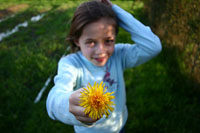 People-Pleasing
People-PleasingEarly in childhood, I learned to sense what people – especially authority figures – wanted from me, and that I would be rewarded for giving it to them. Now, as an adult, the rewards for people-pleasing aren’t so great. I often say yes to commitments just because I’d feel guilty saying no. I regularly sacrifice my own well-being for the sake of others, a story shared by many fellow nonprofiteers and educators. I unconsciously seek a “Wow” factor in the things that I do to replicate the affirmation that I got in school.
I know that I could be more effective, and generally happier, if I could just determine what I wanted to do, and then do it. It sounds simple, but after spending around 20,000 hours* in school doing what was expected of me, I’m out of touch with what I actually want to do.
* A very rough estimate of time I’ve spent in school from kindergarten through college, based on an 180-day average school year during K-12 and a quarter system in college.
September 25, 2008 About the Project, Personal Development, Reschooling Reasons 8 Read more >
If you do, leave a comment!
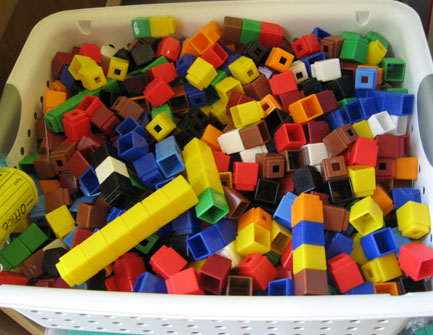
 I first worked with fourth graders through the I Have a Dream after-school program in East Palo Alto. I taught Creative Writing/California History to a small group of low-income African American kids, and they were quite a handful. Later that year, I substituted in a fourth grade class of wealthy white kids at a private school in Menlo Park. I found that the kids were just as off the wall as they were in East Palo Alto, and in the same ways. It seems that across socioeconomic lines, fourth graders are a unique breed. They’re right on the border of puberty, no longer children but not yet preteens. As those infamous hormones are beginning to circulate, “tweens” enjoy testing their limits.
I first worked with fourth graders through the I Have a Dream after-school program in East Palo Alto. I taught Creative Writing/California History to a small group of low-income African American kids, and they were quite a handful. Later that year, I substituted in a fourth grade class of wealthy white kids at a private school in Menlo Park. I found that the kids were just as off the wall as they were in East Palo Alto, and in the same ways. It seems that across socioeconomic lines, fourth graders are a unique breed. They’re right on the border of puberty, no longer children but not yet preteens. As those infamous hormones are beginning to circulate, “tweens” enjoy testing their limits.
This is what I’ve noticed about my fourth grade classmates so far:
1. They stink.
After recess, there’s a slight, foul odor that hovers around the room, drawn from a collection of sweaty feet and armpits. I was in fourth grade myself when my mom gently suggested that I start wearing deodorant. At the time, I felt offended and probably left the room in a huff. In retrospect, however, I’m glad that I got the news from my mom at home than from a classmate in front of my peers. I found one of my first Teen Spirit sticks (pictured above) buried in one of the bathroom cabinets. It’s a weird artifact, but it makes me nostalgic all the same.
September 24, 2008 Childhood, Elementary School, Student Stories 11 Read more >
 Just a quick update, with more to come later tonight….
Just a quick update, with more to come later tonight….
After a week’s hiatus, I started back at elementary school yesterday. It was strange coming back into a child’s world after spending last week completely among grown-ups. It was even stranger to think that many adults live a completely child-free life, rarely having occasion to interact with kids unless they have little ones at home. I find that the kids keep me on my toes, since I’m never sure what they’ll say next, and that I have to raise my energy level to meet theirs. The third graders welcomed me with hugs, personal updates, and — of course — requests for more scary stories. I told them that I was fresh out of stories, and I was glad to find that they still wanted to hang out with me when I wasn’t performing for them.
September 23, 2008 About the Project, Elementary School 0 Read more >
If you do, leave a comment!
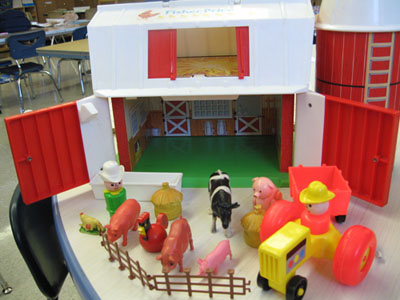
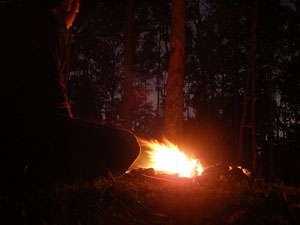 With all the troubling news about the state of the economy, Darren and I talk a lot about learning survival skills. At the risk of sounding like crackpots, we want to be prepared in case something crazy goes down. Today he sent me 10 Skills to Have in the Post-Financial Apocalypse from The Consumerist. The list includes learning to cook, keep a simple budget, and fix things, and I would add:
With all the troubling news about the state of the economy, Darren and I talk a lot about learning survival skills. At the risk of sounding like crackpots, we want to be prepared in case something crazy goes down. Today he sent me 10 Skills to Have in the Post-Financial Apocalypse from The Consumerist. The list includes learning to cook, keep a simple budget, and fix things, and I would add:
1. Learn basic survival skills.
Know how to find and purify water, start a fire, build a shelter, and grow or hunt your own food. My friends Chris and Wes learned these things through a survival course offered by The Tracker School, and they’re the guys I’m running to when the looting begins.
2. Learn how to make stuff instead of buying it.
My friend Elena knows how to make clothes; Jonah can build an oven out of found materials; Blair made his own shoes out of old tires. I’m not saying you have to trade in your Manolos for Goodyears just yet, but it’s good knowledge to have on the back burner. Make Magazine, and its Maker Faire (San Mateo, CA in May; Austin, TX in October), is a great resource for do-it-yourself ideas. It’s a good idea to make your own food, too — I make my own yogurt, and I have friends who make jam, sausage, soy and almond milk, wine, beer, or cheese.
3. Pool your resources.
To minimize costs and live in community, various friends and I hope to settle on the same property one day, in separate houses but with shared spaces. From a music room to a costume closet to a wine cellar, the possibilities are endless. We could also share cars, childcare, and basic services like internet. If you can collaborate with certain people without going nuts, it’s in your economic interest. Check out the Cohousing Association of the United States for ideas.
If you want any other ideas, you’ll have to track me down in my secret underground bunker. All I can say is that it’s fully stocked with water, blankets, and 100 pounds of dark Belgian chocolate (like dual-purpose sandbags), and if something goes down, I will be hard pressed to share.
Today at brunch, I ran into one of my high school teachers and her partner, Burt. I mentioned that going to my 10-year high school reunion had raised some questions for me:
* At graduation, what were my hopes for the coming years? How close have I come to living out what I had envisioned, and how do I feel about that?
* In what ways did school help me get to where I am now? In what ways is it holding me back?
* How might I have turned out differently if I’d been able to do what I wanted in school instead of what was required of me?
Burt said that he’d attended his 35-year high school reunion this year, and he and his classmates had been having similar conversations. They’d been talking about how their education had shaped them, and what effects it was still having on them. It fascinates me that these questions are coming up not only 10 years after high school graduation, but 35 years after. It reminds me of how important it is to reflect on them throughout our lives, so they don’t occur to us for the first time at our 50th high school reunion, or our 70th.
How would you answer these questions yourself? Leave a comment.
September 21, 2008 Educational Philosophy & Practice, Personal Development 4 Read more >